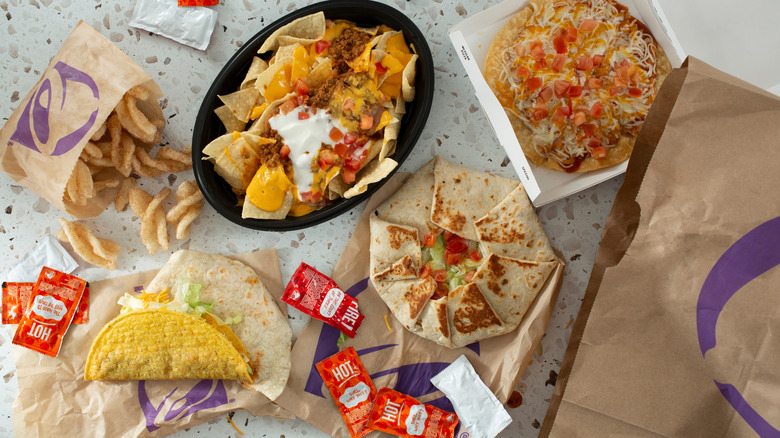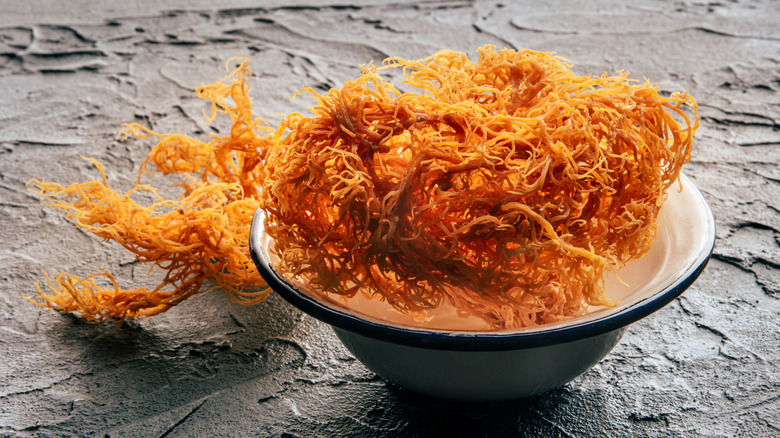Why Taco Bell Steak Has That Odd Texture
It's no secret that Taco Bell has an almost cult-like following — not even Dolly Parton can resist a soft taco supreme from the fast food franchise. However, the multi-billion-dollar chain has also faced its fair share of controversy over the years. In 2022, a former employee went on TikTok to claim that Taco Bell's steak was composed of 90% gelatin, a claim the company promptly denied in a statement (via Newsweek). A quick look at the ingredient statements on Taco Bell's website, however, reveals the true culprit behind the gelatinous texture of the brand's steak products: carrageenan.
Unlike gelatin, a protein derived from animal skins and bones, carrageenan is a common food additive made from red seaweed. Carrageenan is a natural emulsifier, preservative, and thickening agent often used to maintain the shelf stability and texture of many grocery and fast food items (even McDonald's uses it to keep its famous ice cream silky smooth). At Taco Bell, carrageenan is not only added to its controversial steak, but is also listed as an ingredient in the al pastor chicken, slow-roasted chicken, and reduced-fat sour cream. If you're hoping to avoid this additive on your next Taco Bell run, you might want to stick with the classic seasoned beef.
Is carrageenan safe to eat?
Short answer: Yes, carrageenan is safe to eat, but researchers are divided on exactly how safe it is. Carrageenan is a naturally occurring substance found in the red algae species known as Rhodophyta or Irish moss. To produce the carbohydrate-based additive, red seaweed undergoes one of three manufacturing processes: mechanical heating, chemical treatment, or enzymatic extraction. In 1961, the FDA approved carrageenan as a "Generally Regarded As Safe" (GRAS) food additive, and it has since been used in everything from deli meat to infant formula and even many popular brands of toothpaste. Because it is derived from seaweed, carrageenan is also commonly used as a plant-based stabilizer in commercial almond milk and serves as a gelatin substitute in vegan marshmallows.
However, despite its widespread use in commercial food production, carrageenan has been the subject of controversy over the years. In 2008, the FDA rejected a citizen petition filed by University of Illinois physician and researcher Dr. Joanne Tobacman to ban the use of carrageenan in food. The petition presented scientific research that linked carrageenan ingestion to gastrointestinal inflammation and disease in animals.
Later, in 2016, the National Organic Standards Board voted to remove carrageenan from its list of approved additives for items labeled "USDA Organic," citing similar research. However, due to the current lack of human-based evidence supporting claims that carrageenan is harmful to human health, the substance remains on the FDA's list of approved additives to this day.


